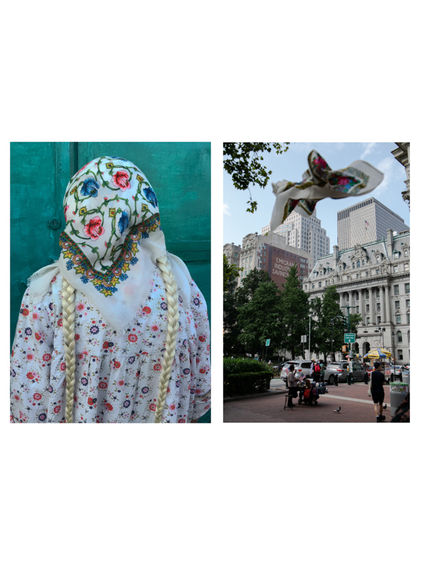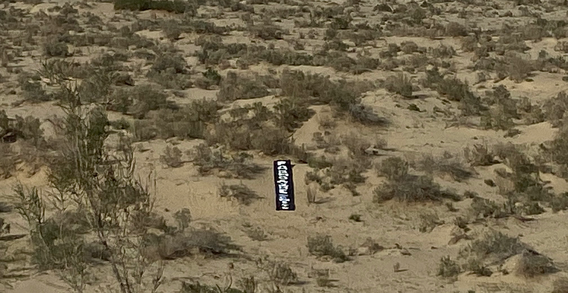As an immigrant, my journey reflects my ancestors' path, moving from place to place in search of belonging. My family's story includes forced migrations - from the famine-stricken Volga region to Uzbekistan - and challenges of adapting to new lands.
Now, in New York City, I feel the weight of separation from my roots.
Amidst the city's crowds, I find moments that evoke memories of home, blending warmth with longing. This project captures the duality of displacement and adaptation, honoring heritage while navigating a new, often solitary landscape.
“Indifference does not provoke a response. Indifference is not a reaction. Indifference is not the beginning, it is the end. Therefore, indifference is always the ally of the enemy, for it benefits the aggressor and never the victim, whose pain is only deepened by the feeling of being forgotten. Political prisoners, starving children, refugees with no roof over their heads—failing to react to their suffering, failing to alleviate their loneliness by offering a spark of hope, means erasing them from human memory. By denying their humanity, we betray our own.”
— Elie Wiesel, Romanian-born American writer, professor, political activist, Nobel laureate, and Holocaust survivor.
This project was created in the first months of the war in Ukraine*, when the artist found herself in forced exile in Uzbekistan. Arriving in the region of the former Aral Sea*, she witnessed a barren, lifeless seabed—a landscape of loss, echoing how the disappearance of water devastated entire communities. Just as indifference to war and suffering erodes the human soul.
The work was created using found, repurposed materials—discarded remnants left behind in an abandoned landscape. On the dried seabed, a massive black banner displays the inscription: “Indifference = Death.” A stark, inescapable message, reminding us that silence always serves the aggressor.
To turn away is to let things die.
*The Aral Sea represents one of the largest ecological crises of the 20th century; its disappearance left thousands without water, employment, and a future.
*The war in Ukraine has been ongoing for over three years; tens of thousands have been killed, and millions have been displaced.

"Forgiveness is the only path to the source of love within us."
The "Radical Forgiveness" project is a complex and multilayered exploration that delves deep into the fabric of family history, where every detail holds significance, every piece of cloth carries memory, and every emotion echoes the past. On this desolate winter field, surrounded by endless snow, a ritual of purification unfolded, piercing through generations and freeing them from the weight of history.
The story begins with an ancient chest, passed down through the hands of multiple generations. This chest became the guardian of family relics, among which was the fabric that played a pivotal role in my great-grandmother's life. It holds fragments of the lives of the women in my family, each of whom added a piece of her soul, her pain, and her love. This chest was more than just a repository; it absorbed the energetic imprints of those who kept it, those who lived with hope and suffered, leaving material evidence of their fates.
My great-grandmother, who in her teenage years was forced to leave her home and work in a stone quarry, received a beautiful piece of fabric as a reward for her hard labor. She intended to gift it to her mother as a symbol of her love and gratitude. However, upon returning to her village, she was met with the news of her mother’s sudden death. The fabric she had so carefully preserved became a symbol of loss and irrevocable grief, laying the groundwork for the family trauma that would be passed down through generations. This piece of cloth, along with others, was carefully kept in the chest, handed down from my great-grandmother to her daughter, and then to my mother. The fabric became a testament not only to one woman’s fate but to a collective pattern of losses, fears, and unfulfilled hopes that bound our family.
This experience, shaped by loss and pain, created an esoteric egregore that permeated every woman in our family. The loss of a mother—whether physical or emotional—became an inevitable scenario, repeating itself in every generation. This egregore of fear and dependency left a heavy imprint on our family life, creating a dysfunction that prevented us from breaking free and starting anew. The fear of loss became the core around which our emotional patterns formed, depriving us of the opportunity for growth and personal development.
The creation of two-meter-high letters spelling out the word "Прости" and their subsequent burning against the winter landscape became the culmination of this project. This ritual symbolizes the desire to break the chains that fear had wrapped around us for so many years. The fire consumes the letters, transforming matter into ash, freeing space for new life, new energy, and new joy. With every stitch, every movement as I worked on these letters, I imbued them with the intention to break the ancient cycle of fear and pain, creating conditions for inner harmony.
I arrived at this project through my own experiences, through deep personal work with these family egregores. This project became not just an act of artistic expression but also my personal transformation—a path to liberation from the burdens of the past and to a new beginning. "Прости" is more than just a word; it is a symbol of healing, a symbol of transformation that helps to free not only me but my entire family from age-old bonds, allowing us to begin the journey toward inner peace and renewal.
The "Radical Forgiveness" project is an invitation to exploration, a challenge that encourages each viewer to reflect on their own family ties, on how the past shapes the present, and to find within themselves the strength to overcome this legacy through forgiveness and conscious release.
"…When you get to the core, all that remains is love. If you can truly connect with this source, then you are free; then you are home…"
Quotes from the C. Tipping, Radical Forgiveness
In the photos are my team, my cousins, and my grandmother.

“Grandmother: A Feminist Legacy in Patterns and Portraits”
This project explores the intersections of heritage, feminism, and personal discovery through a series of portraits of my grandmother. Each image features her wearing traditional Tatar garments, set against vibrant backdrops inspired by the works of Yayoi Kusama, a Japanese artist whose feminist perspective and bold visual language have deeply influenced my work.
Through these portraits, I sought not only to honor my grandmother’s strength and resilience but also to reflect on her life as a feminist figure within our family. Much like Kusama, who challenges societal norms with her art, my grandmother embodies a quiet yet powerful defiance against the limitations imposed on women of her generation. By merging her image with Kusama’s distinctive visual patterns, I aimed to highlight the shared qualities of these two women—courage, independence, and an unwavering sense of self.
This project also became a personal journey for me, allowing me to connect more deeply with my grandmother, a woman who had always seemed distant. The time spent together during these photoshoots revealed layers of her personality that I had not seen before, bringing us closer in ways that I hadn’t expected. What began as an artistic endeavor evolved into a transformative experience, one that bridged the gap between generations and fostered a deeper understanding of the strong women in my life.
It is important to note that the use of Yayoi Kusama’s works in this project represents a form of cultural appropriation and a tribute to her art. This approach allows me to blend her aesthetic vision with my own story, creating an interaction between cultures and generations—a key element of the project that highlights the deep connections between the personal and the collective, the individual and the universal.





















